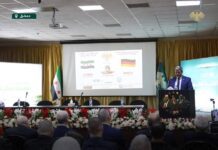
A recent study from the Brookings institute Networked Authoritarianism and Economic Resilience in Syria by Karam Shaar and Steven Heydemann exposes “Assad’s emerging network of businesses helps him survive amid economic collapse.” The paper provides a detailed examination of how Bashar al-Assad has restructured his economic networks to maintain power amid ongoing economic collapse.
The report highlights how Assad’s emerging network of businesses has become a critical tool for the regime’s survival, allowing it to resist external pressures and continue its authoritarian rule despite severe economic sanctions and a deteriorating domestic situation.
The study outlines that for the Biden administration, Syria’s ongoing conflict has been a low priority, largely relegated to the sidelines of US foreign policy. The administration’s focus has been limited to containing the spill-over effects of the conflict, such as refugee flows, narcotics smuggling, and friction with Turkey over US support for PKK-aligned forces.
Despite the resurgence of the ISIS, the US has largely outsourced counter-terrorism efforts to the Syrian Democratic Forces (SDF), its partners with strong ties to the terrorist PKK, and there has been little diplomatic push toward a comprehensive political solution, as outlined in UN Security Council Resolution 2254. Even the US stance against normalizing the Assad regime has become largely symbolic.
As Syria recedes from both public and official view, the Brookings study warns that Assad’s regime continues to fortify its economic position, making the situation more complex for US and allied policies aimed at isolating the regime.
Assad has deepened his control over crucial economic sectors, using a network of frontmen and women to conceal his involvement and bypass economic sanctions. This reorganization has allowed the regime to maintain economic resilience, even as the country suffers from widespread poverty, with over 90% of Syrians living below the poverty line, according to the World Bank.
The study delves into the regime’s use of business cronies, who have played key roles in sanctions avoidance and asset concealment, enabling the elite to sustain a privileged lifestyle. Assad’s approach has evolved, especially after the 2019 fallout with his cousin Rami Makhlouf, a once-trusted ally.
The dismantling of Makhlouf’s empire marked a turning point in Assad’s strategy, leading to a restructuring of the economic networks that now revolve more directly around Bashar and his family. The analysis of firm-level micro-data reveals that Assad has moved to centralize control, reducing the unpredictability associated with relying on cronies and positioning himself as Syria’s dominant economic actor.
Assad’s new networks, operating through business fronts, differ significantly from traditional crony networks. These fronts have no public profiles and exist solely to serve Assad’s interests. This shift has allowed him to distance himself from public scrutiny while continuing to exert control over Syria’s economy. The report also highlights the risks associated with this strategy, noting that while these networks contribute to Assad’s economic resilience, they do little to alleviate the country’s economic crisis, which remains the regime’s greatest vulnerability.
The study concludes with recommendations for US policy, emphasizing the need for greater scrutiny of Assad’s economic networks. The authors suggest that the Biden administration could counter these networks by exposing them to public view and increasing sanctions on those involved. The study also highlights the importance of ensuring that international aid does not inadvertently support Assad’s regime through cooperation with regime-linked entities.








